Contador fights back on Mortirolo to extend Giro d’Italia lead
"It was a very complicated stage"
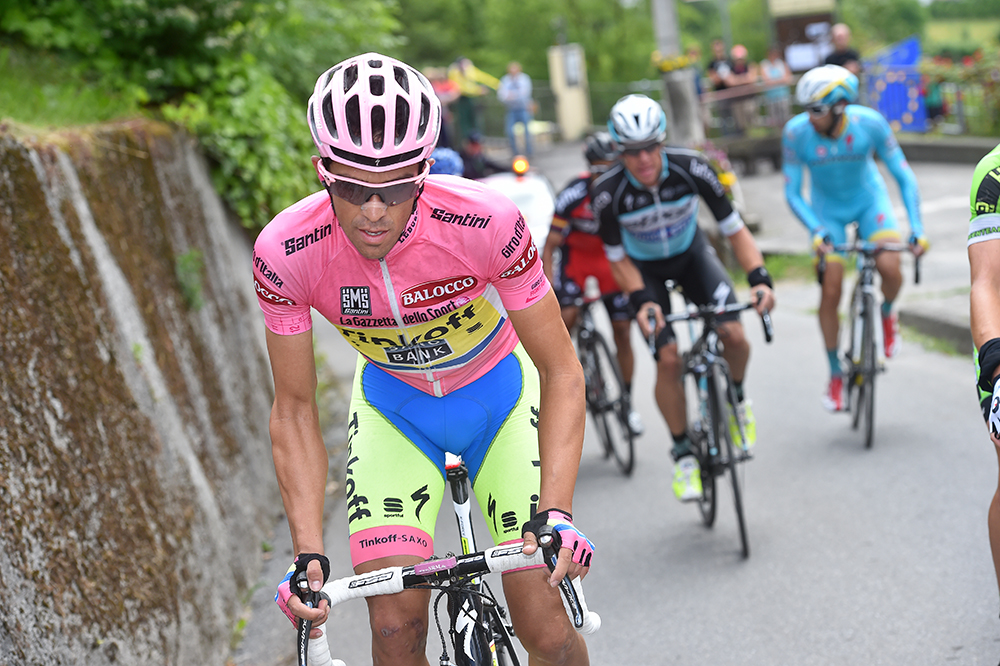
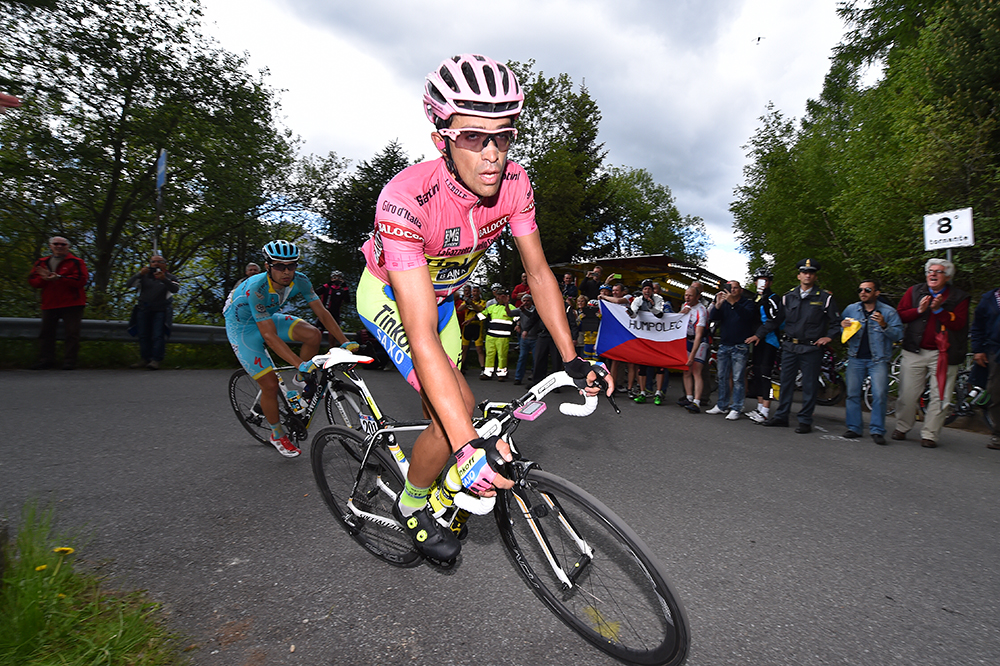
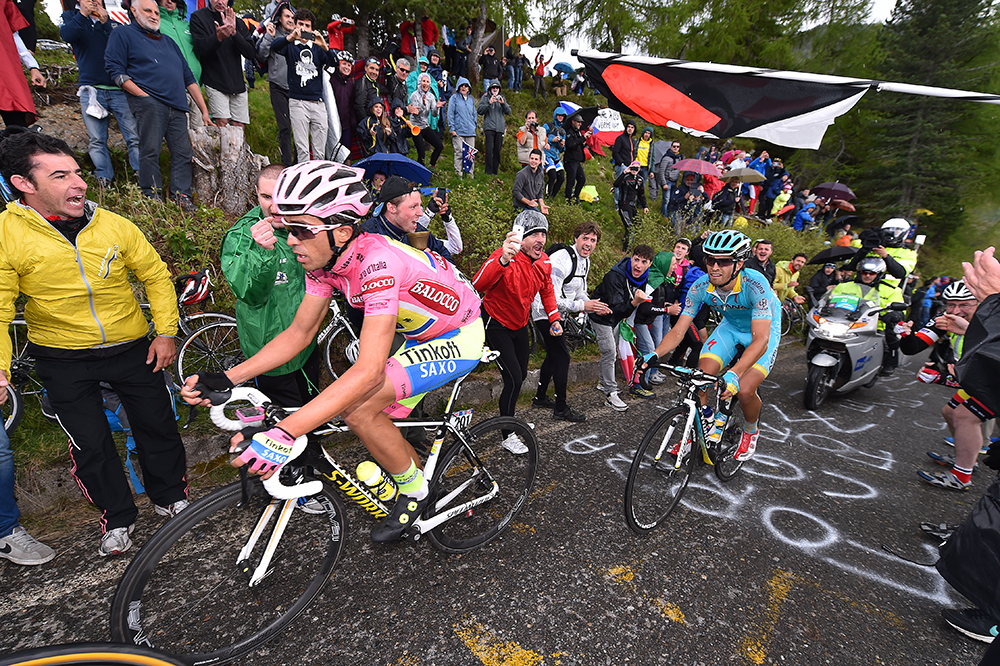
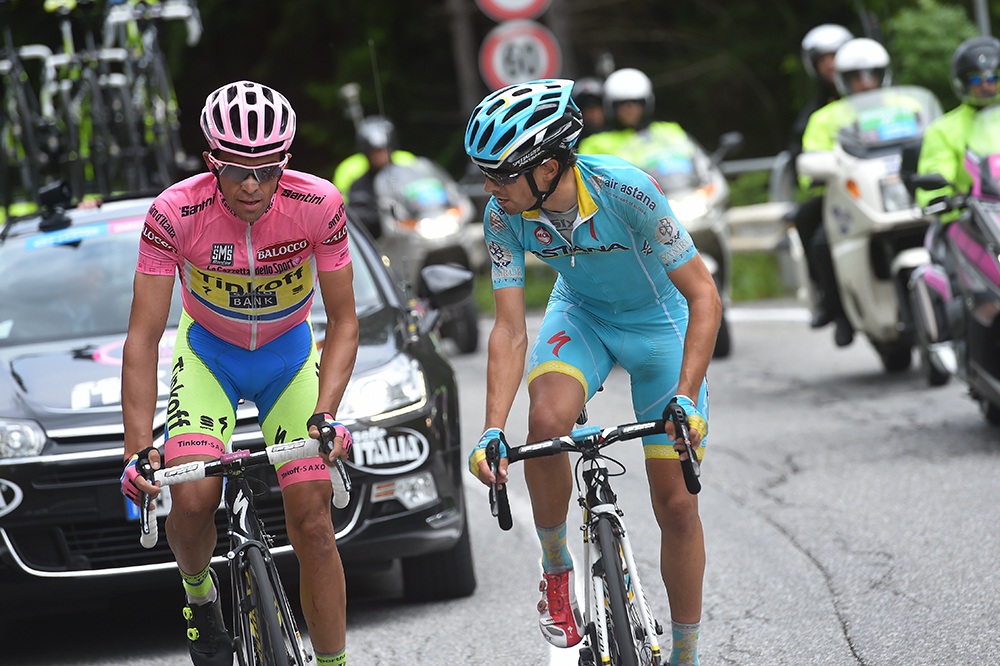
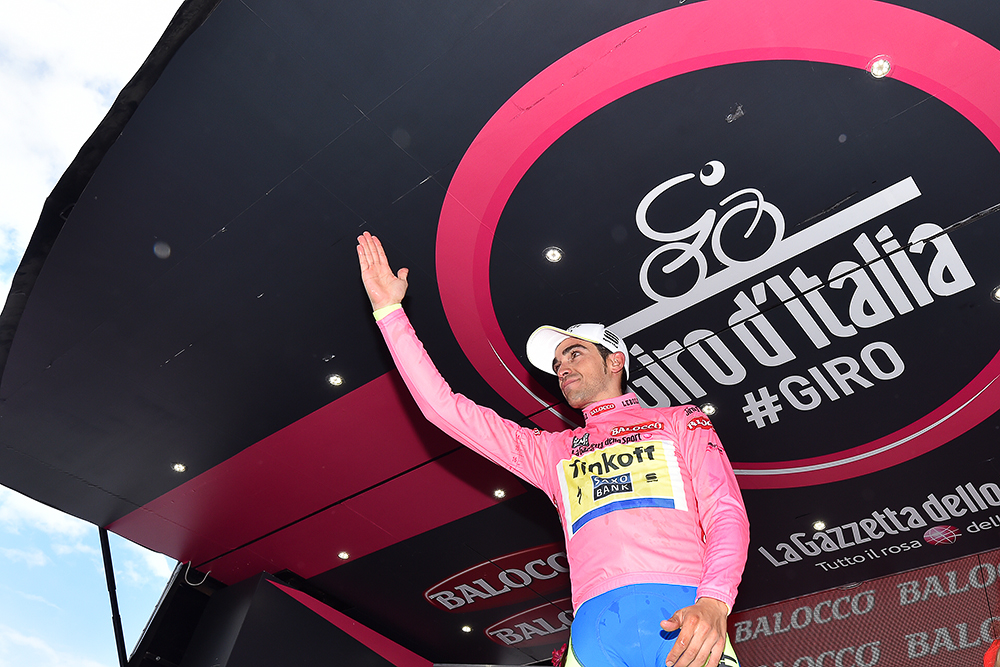
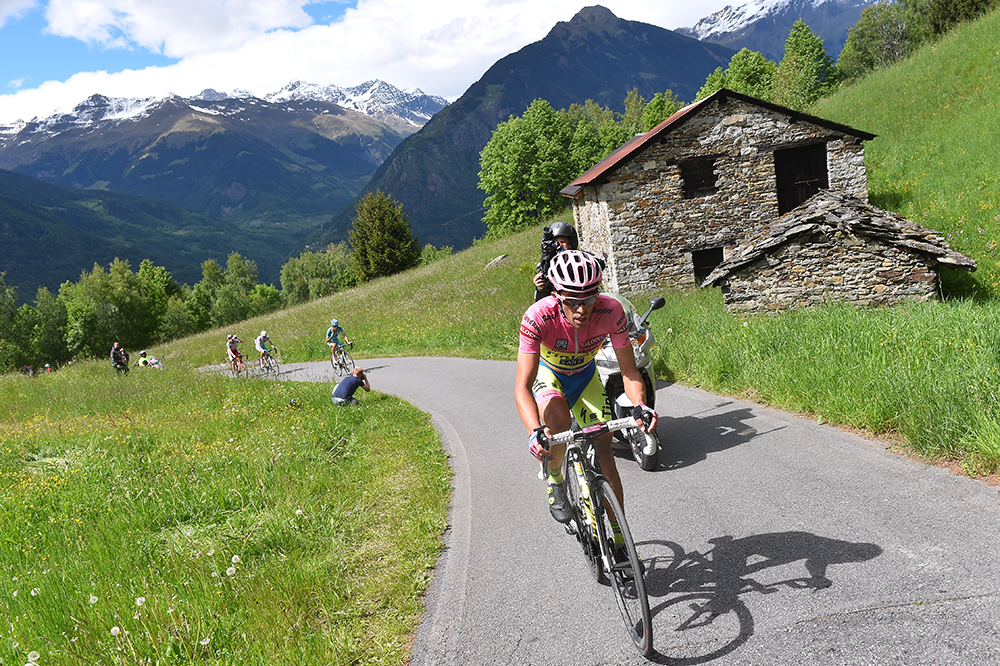
"Cycling isn't mathematics," Alberto Contador said after crossing the line in Aprica, and he wasn't wrong, certainly not after a stage so enthralling that the extension of his overall lead at this Giro d'Italia to more than four minutes felt like something of an afterthought. "These are the kind of stages that people remember."
Tinkov: I don’t think Astana and Katusha showed any class
Landa eclipses Aru on the Mortirolo
Kruijswijk keen to take advantage of form at Giro d’Italia
Video: Highlights of Giro d'Italia stage 17
Aru tries to stay optimistic and on the podium at the Giro d’Italia
Stage wins of secondary importance for Contador at Giro d’Italia
Contador on the Mortirolo was a ride of biblical proportions
Stalled by a puncture shortly after passing through the finish line at Aprica for the first time, Contador was forced into a frantic chase as Katusha and Astana pushed the pace up front, and he had to claw his way back up to the leaders alone on the mighty Mortirolo. Once that remontada was complete, Contador then dropped Fabio Aru (Astana) six kilometres shy of the summit, only to be in turn distanced by the Sardinian's teammate Mikel Landa on the final climb the finish.
"It was a very complicated stage," Contador said with some understatement. "I punctured on the descent but until then it had been a perfect day. [Ivan] Basso gave me his wheel but it took a while to change. The whole team put in a huge effort to help me, my pulse was hitting 180 on the flat. They were riding full-on up front, and I knew then it would be a hard day."
This Giro had appeared to be petering out to a predictable conclusion after a weekend that saw Contador put daylight into Aru at the top of the overall standing but, like Alex Ferguson's Manchester United teams, the Spaniard never seems content to do things the easy way.
Curiously, Contador's mechanical problem on the descent from Aprica was not reported on race radio, and he chose to accept a wheel from Basso rather than change his bike altogether. By the time he re-entered the fray, Contador was over a minute down on a leading group that was being driven by the Katusha and Astana squads. While Katusha directeur sportif Dimitri Konyshev pleaded ignorance of Contador's plight, Landa later suggested that his team had looked to take advantage of the situation.
"When I saw Astana were on the front, I knew that I'd start the Mortirolo with a deficit," Contador said. "The deficit itself wasn't the problem so much as having to ride flat out for 10 kilometres before the climb. On the Mortirolo, I rode at my own rhythm. I treated it like a time trial. I never lost my composure."
Mortirolo melodrama
Get The Leadout Newsletter
The latest race content, interviews, features, reviews and expert buying guides, direct to your inbox!
Contador began the Mortirolo 52 seconds down on the leading group, which was whittled down to just Landa, Aru and Steven Kruijswijk (LottoNL-Jumbo) after the opening kilometres of climbing. As the gradient stiffened, Contador began to dance past dropped rider upon dropped rider with disquieting ease, prompting inevitable comparisons with Marco Pantani's comeback on the climb to Oropa at the 1999 Giro.
The Spaniard was some way short of matching Pantani's time of 43 minutes up the Mortirolo in 1994 (or, indeed Ivan Gotti's 1996 record of 42:40), but he scaled the climb far quicker than anyone else here, making light work of its 18% slopes to clock 45:07 for the 11.85 kilometres, with only Kruijswijk and Landa within a minute of his mark on the ascent. "I thought about the difficulty ahead of me. I knew that I couldn't afford any more mechanical problems or a hunger knock," Contador said.
By the time Contador edged back up to the leaders with more than seven kilometres left to climb, Aru was already began to flag, and he was distanced irretrievably when the pink jersey accelerated shortly afterwards. Only Kruijswijk and Landa could follow, with the Dutchman performing the vast majority of the pace-making thereafter.
At the summit, they led Aru by 1:52, an advantage that grew once more as they climbed again towards the finish at Aprica. After sitting in the wheels in accordance with team orders for more than an hour, Landa jumped clear with four kilometres remaining to win the stage, to the obvious irritation of Contador, who crossed the line with Kruijswijk 38 seconds later.
"As for Landa maybe he abandoned his leader a little bit but everyone does his own race," Contador said pointedly in his press conference afterwards. "For me, Kruijswijk did great work and under normal circumstances, I would have given him the stage win but everybody has his own interests and I respect that."
Landa now climbs to second place in the overall standings, 4:02 down, while the flagging Aru drops to third, a further 50 seconds back. Contador was sparing when asked to assess the young Basque's prospects. "Landa is going very strongly in this Giro," he said. "We'll have to see how he does in some other races, but he has a good future."
Asked to revisit Astana's forcing following his wheel change, Contador reached for a diplomatic response, remembering, perhaps, his own attack on Andy Schleck's yellow jersey in similar circumstances at the 2010 Tour de France. "I knew that in that situation, the most likely scenario was exactly what happened. I'm not here to debate whether it was right or wrong," he said.
But would Contador acted as Aru did had their roles been reversed? "Today I don't think Aru is happy," he said simply. In that instance at least, the arithmetic of the results sheet speaks for itself.

Barry Ryan was Head of Features at Cyclingnews. He has covered professional cycling since 2010, reporting from the Tour de France, Giro d’Italia and events from Argentina to Japan. His writing has appeared in The Independent, Procycling and Cycling Plus. He is the author of The Ascent: Sean Kelly, Stephen Roche and the Rise of Irish Cycling’s Golden Generation, published by Gill Books.